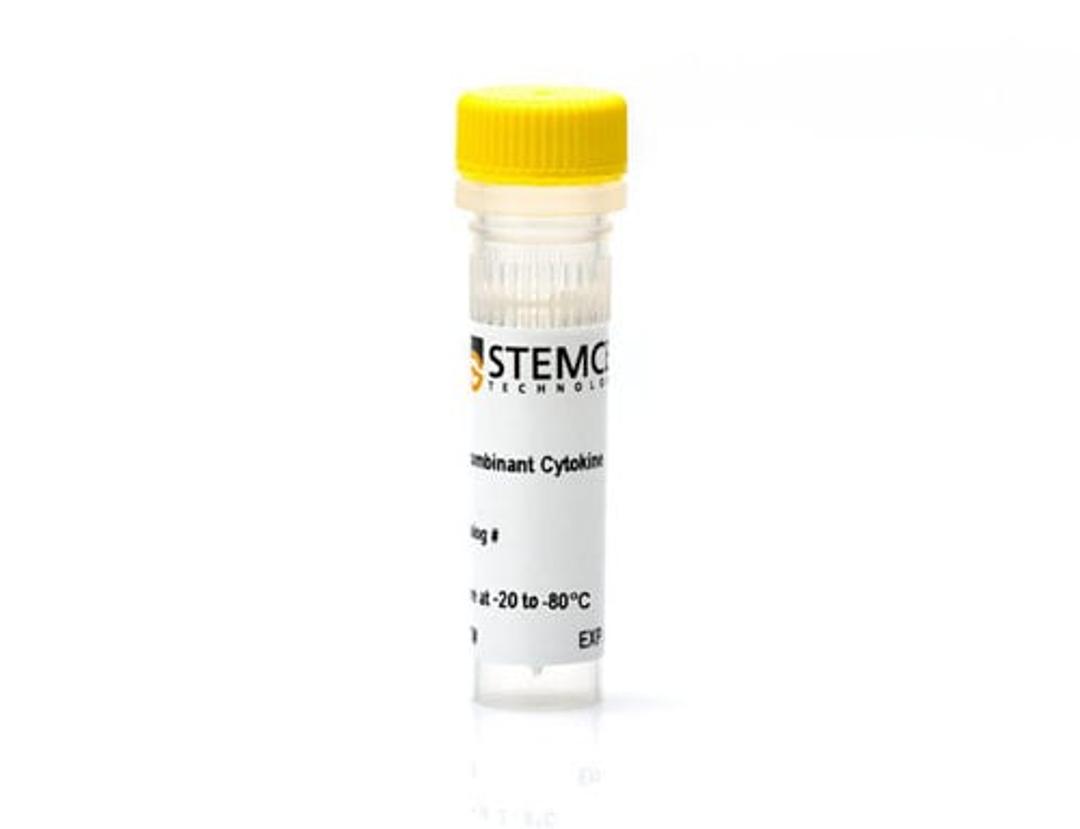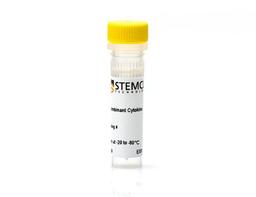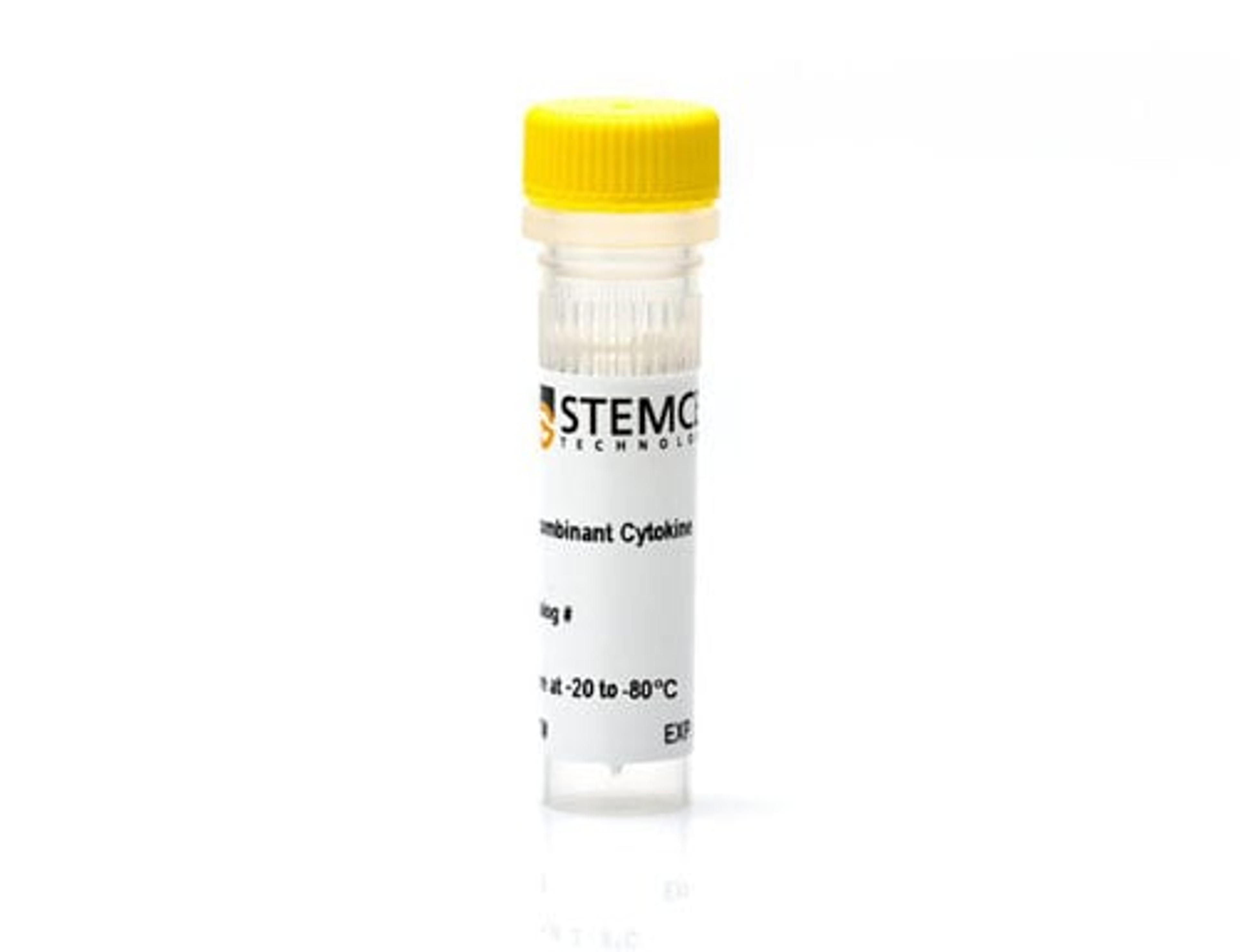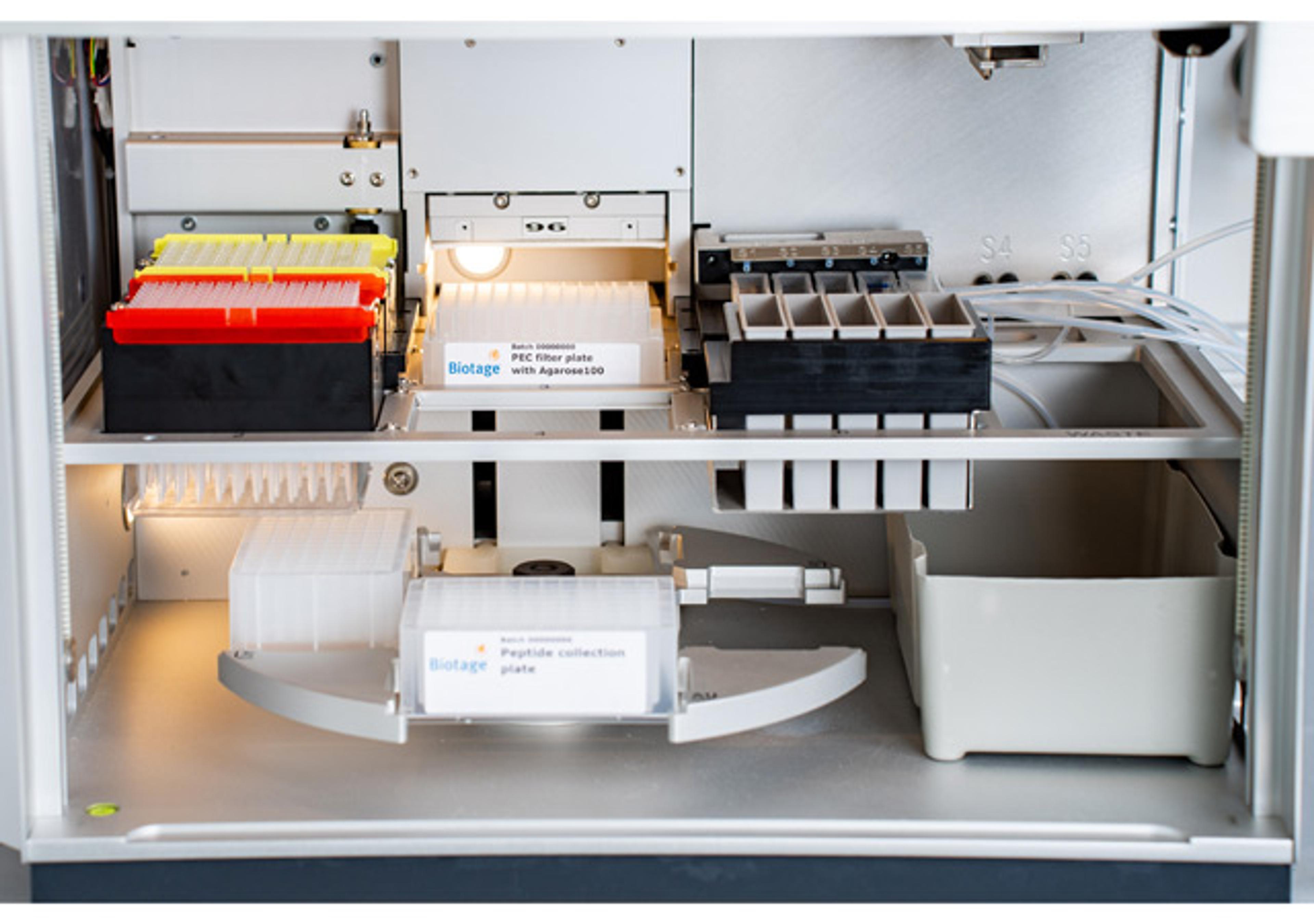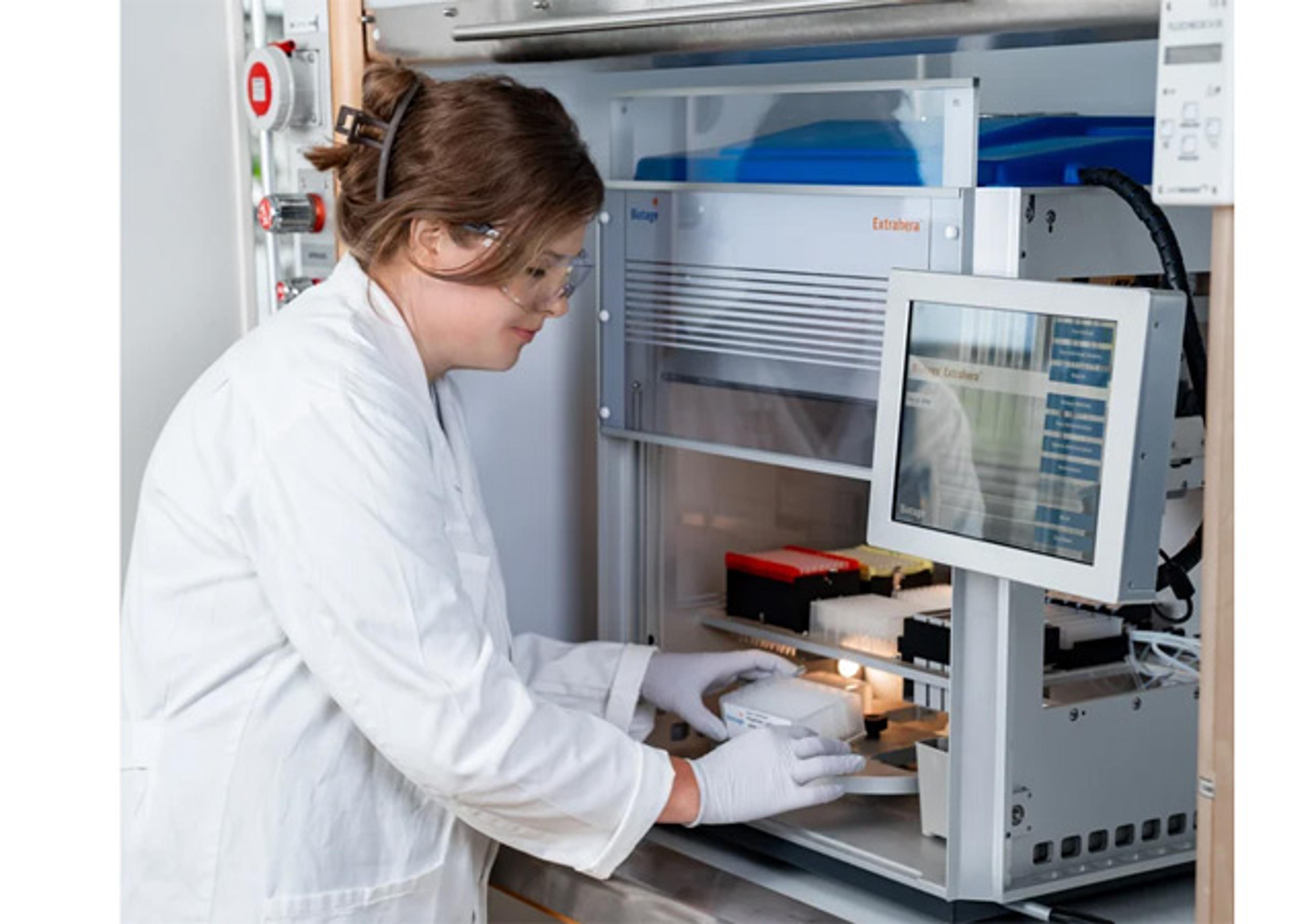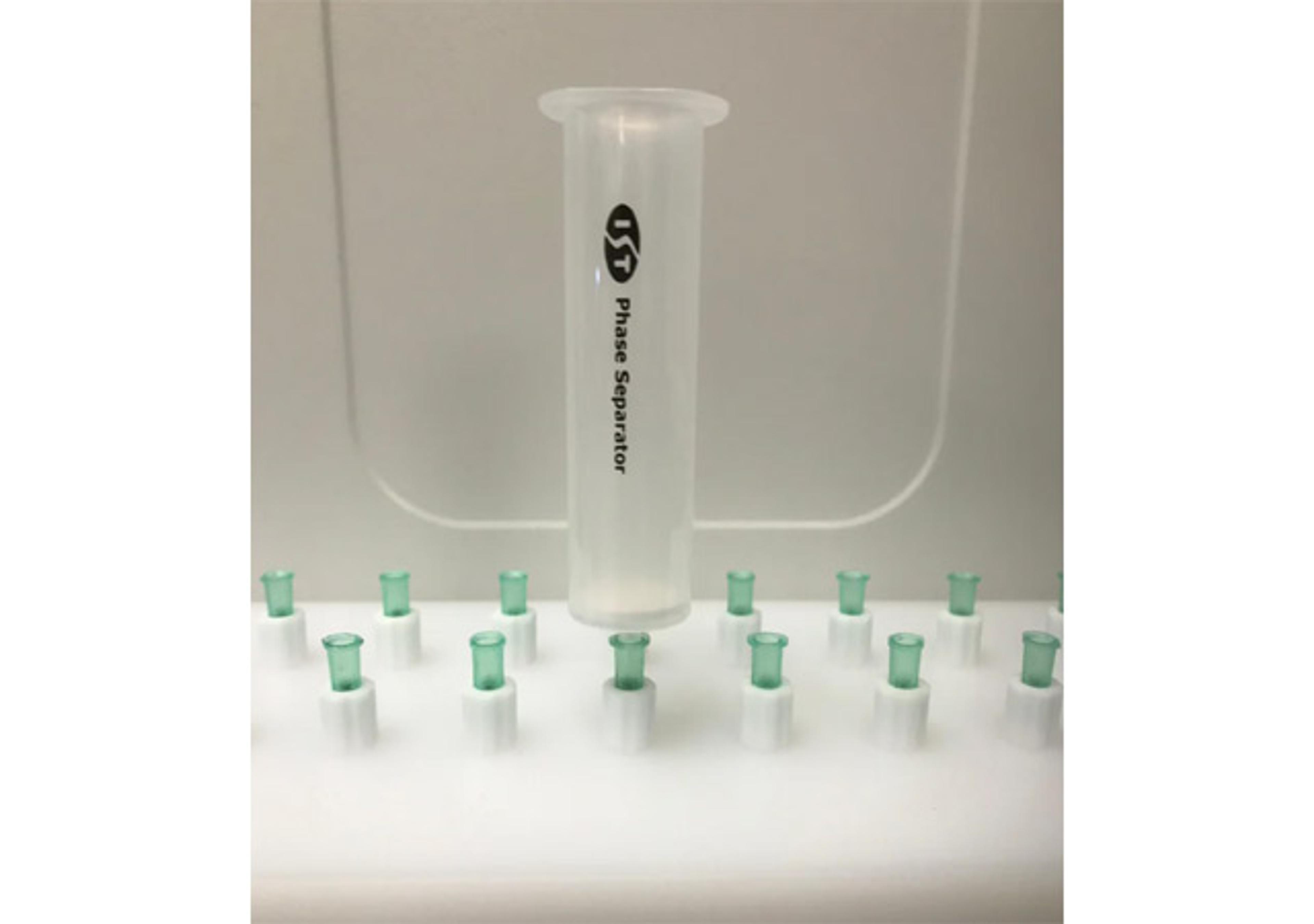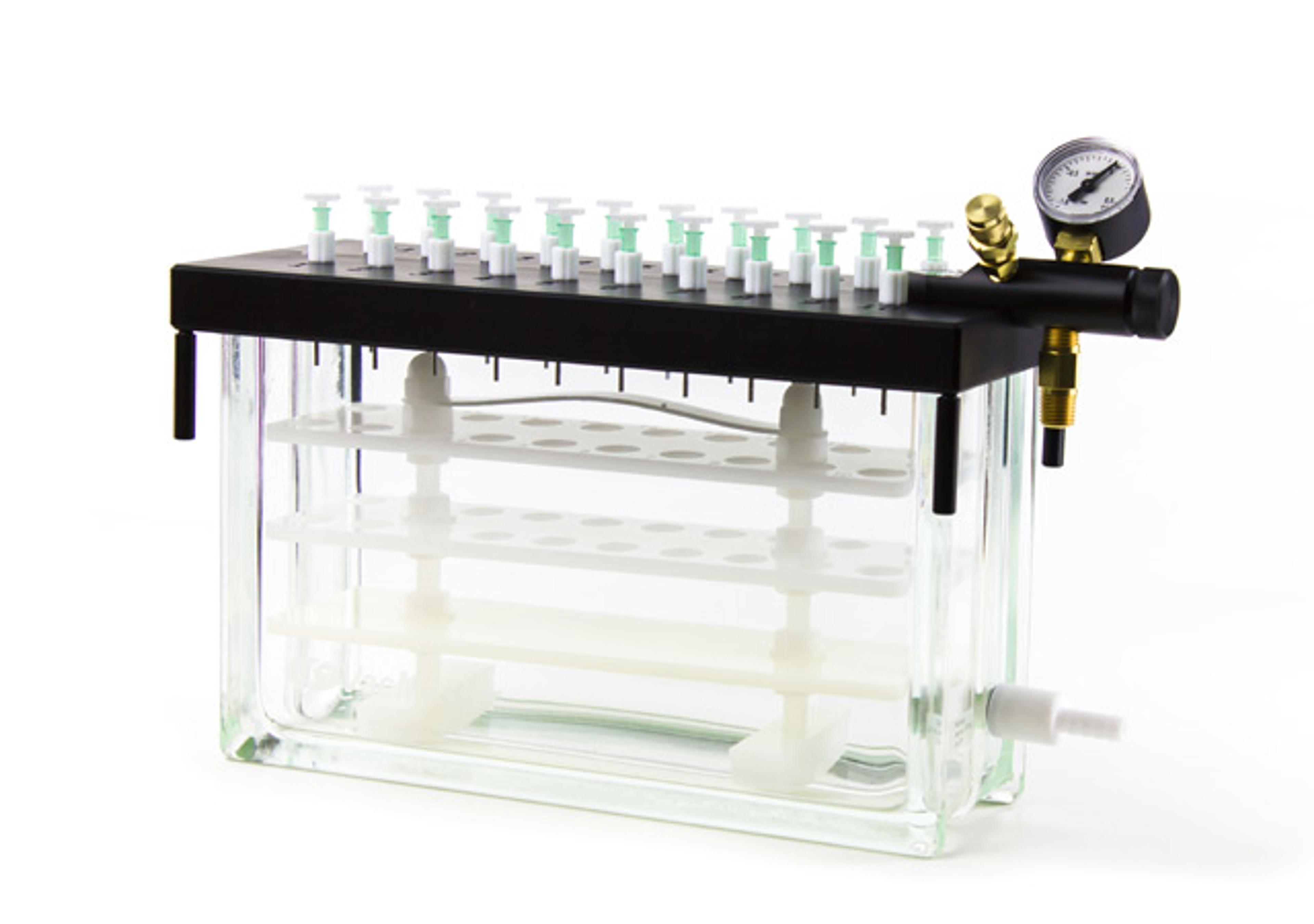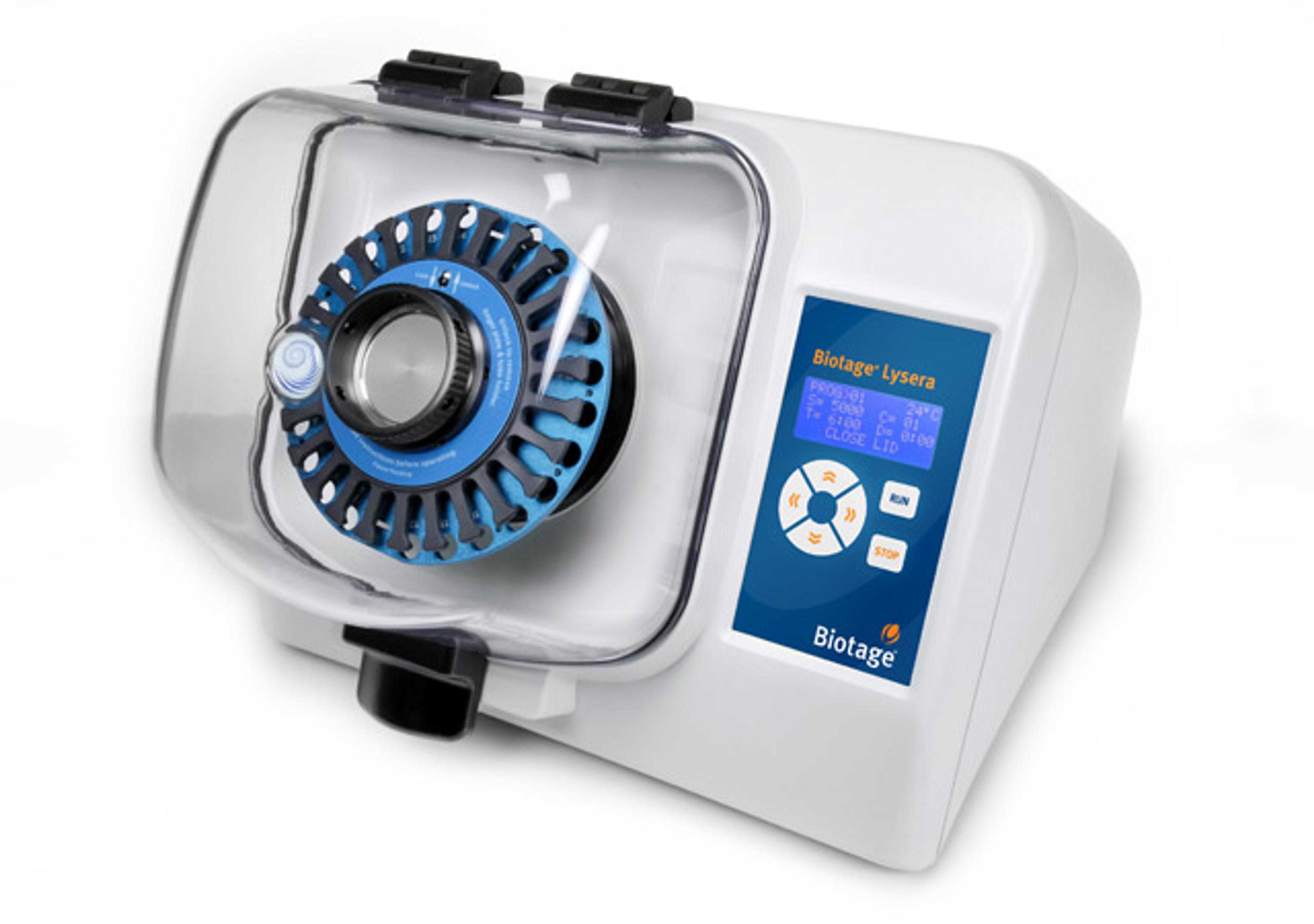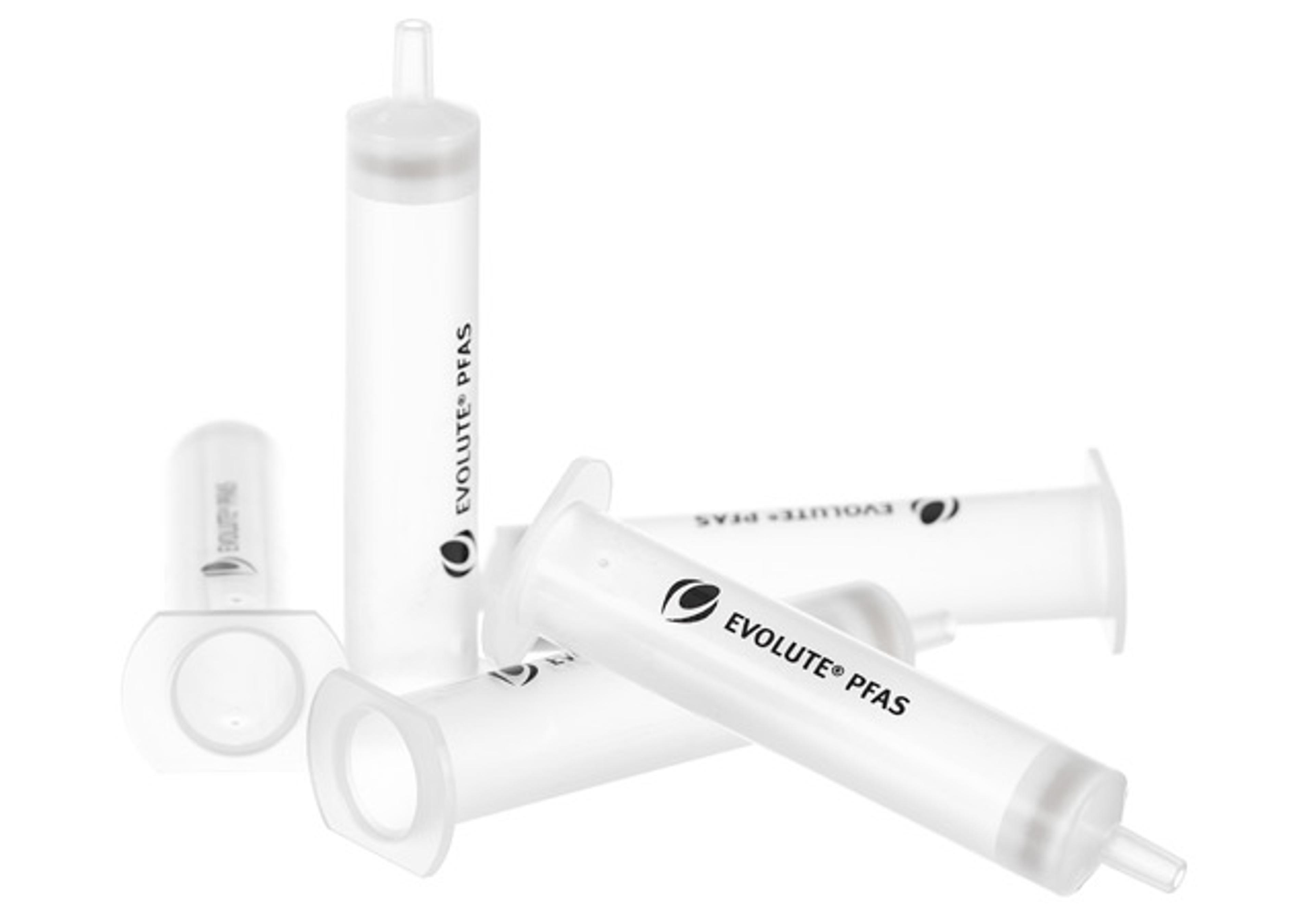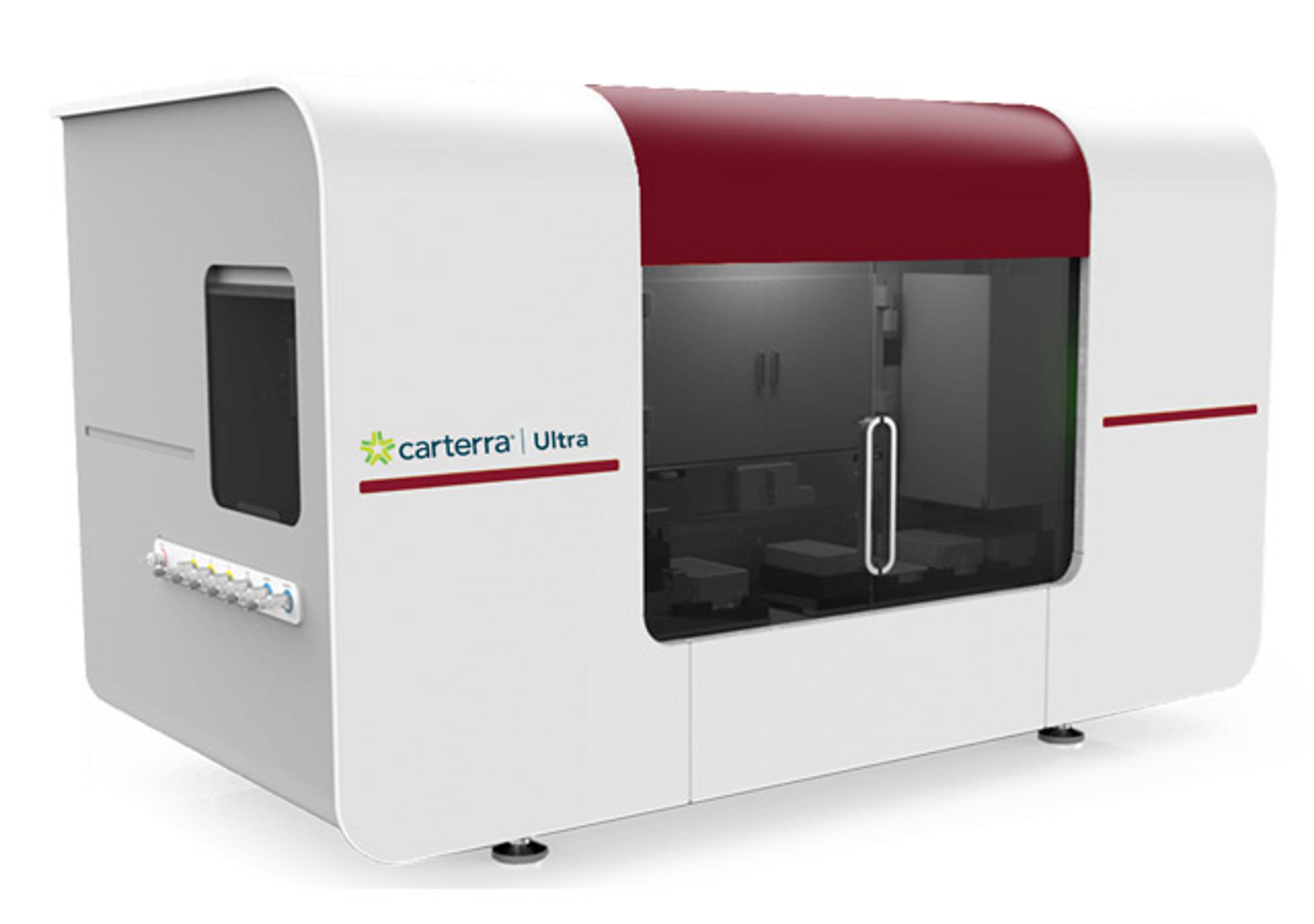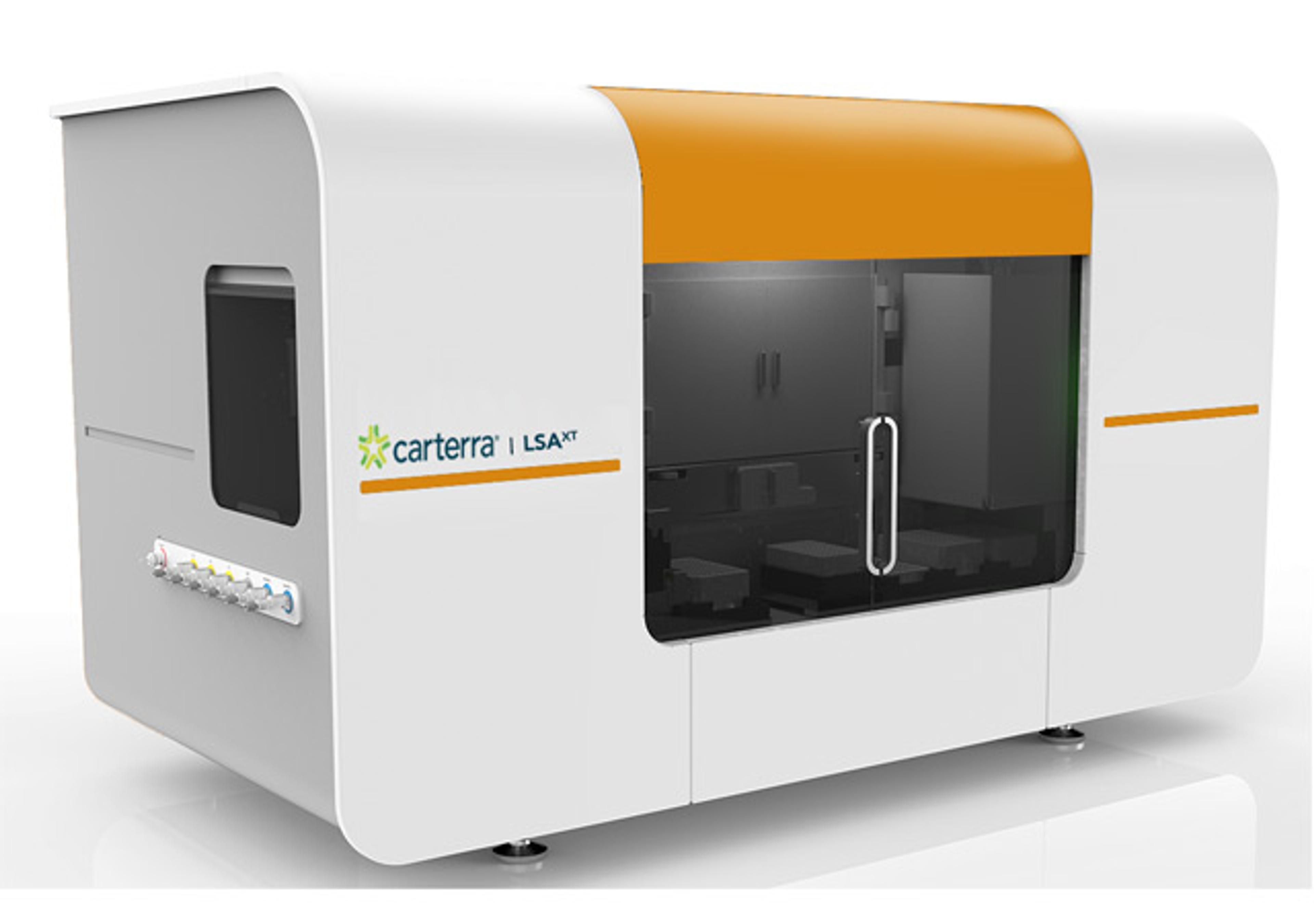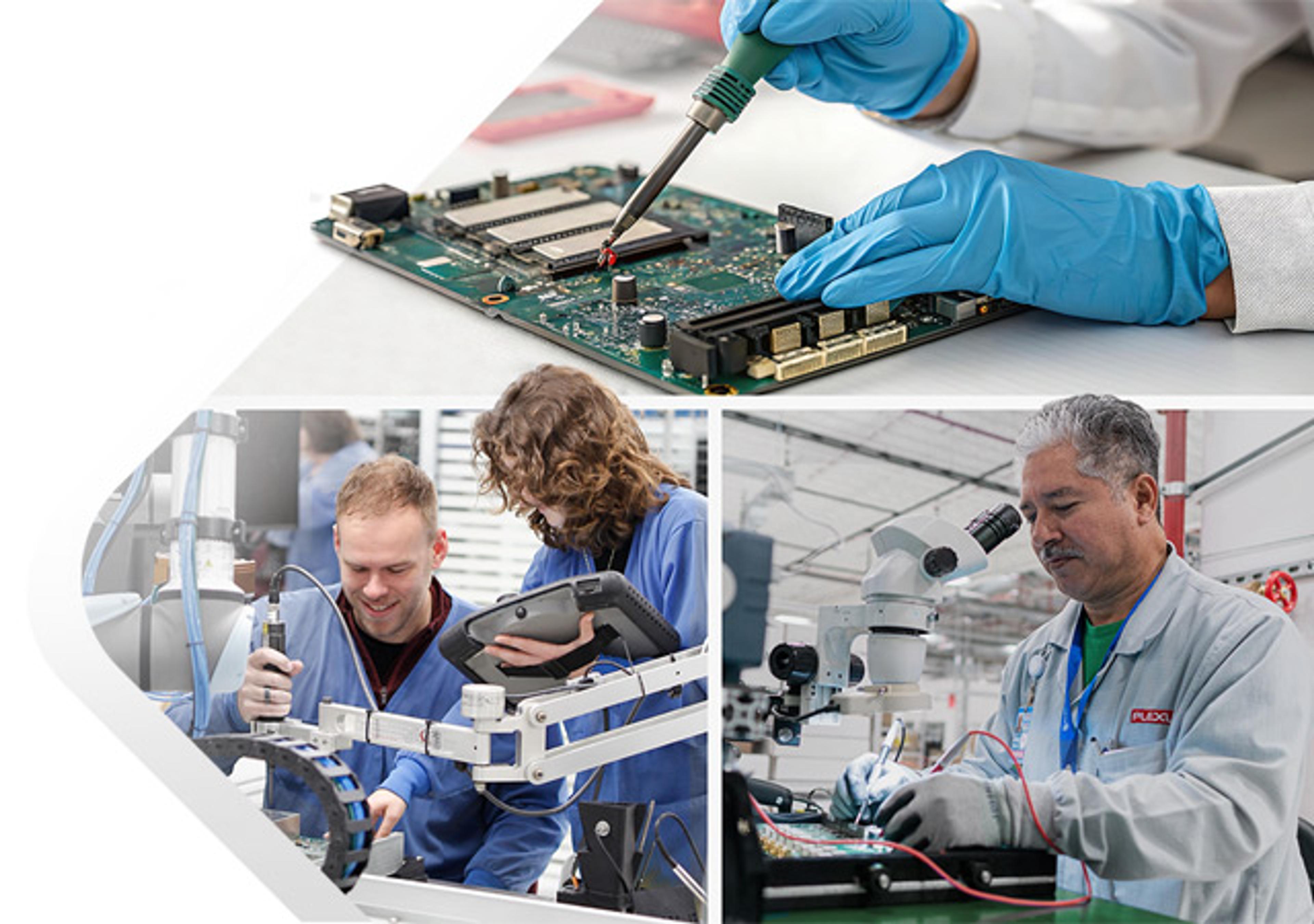Human Recombinant IL-11
Interleukin 11

The supplier does not provide quotations for this product through SelectScience. You can search for similar products in our Product Directory.
Interleukin 11 (IL-11) is a pleiotropic cytokine with effects on various tissues including the bone marrow, brain, and intestinal mucosa (Du & Williams). It belongs to the IL-6 family of cytokines that share a common signal transducer, gp130. IL-11 induces the proliferation of hematopoietic stem cells (Lemoli et al.) and megakaryocytic progenitor cells (Bruno et al.), the maturation of megakaryocytes (Burstein et al.), and the production of platelets (Neben et al.). IL-11 is produced by a variety of cell types including hematopoietic cells, mesenchymal cells, epithelial cells, and neuronal cells. It was first cloned from a cDNA library of the human bone marrow-derived stromal cell line KM-102 (Kawashima et al.). The binding of IL-11 to its receptor induces heterodimerization with the gp130 subunit and activation of JAK tyrosine kinases. IL-11 was the first pharmacologic agent approved for the treatment of chemotherapy-induced thrombocytopenia. IL-11 also plays a role in cancer progression by inducing the proliferation of epithelial cancer cells and the survival of metastatic cells at distant organs. Recently, IL-11 has gained interest for its role in the pathogenesis of diseases in dysregulated mucosal homeostasis associated with STAT3 upregulation, including gastrointestinal cancers (Putoczki et al.).

